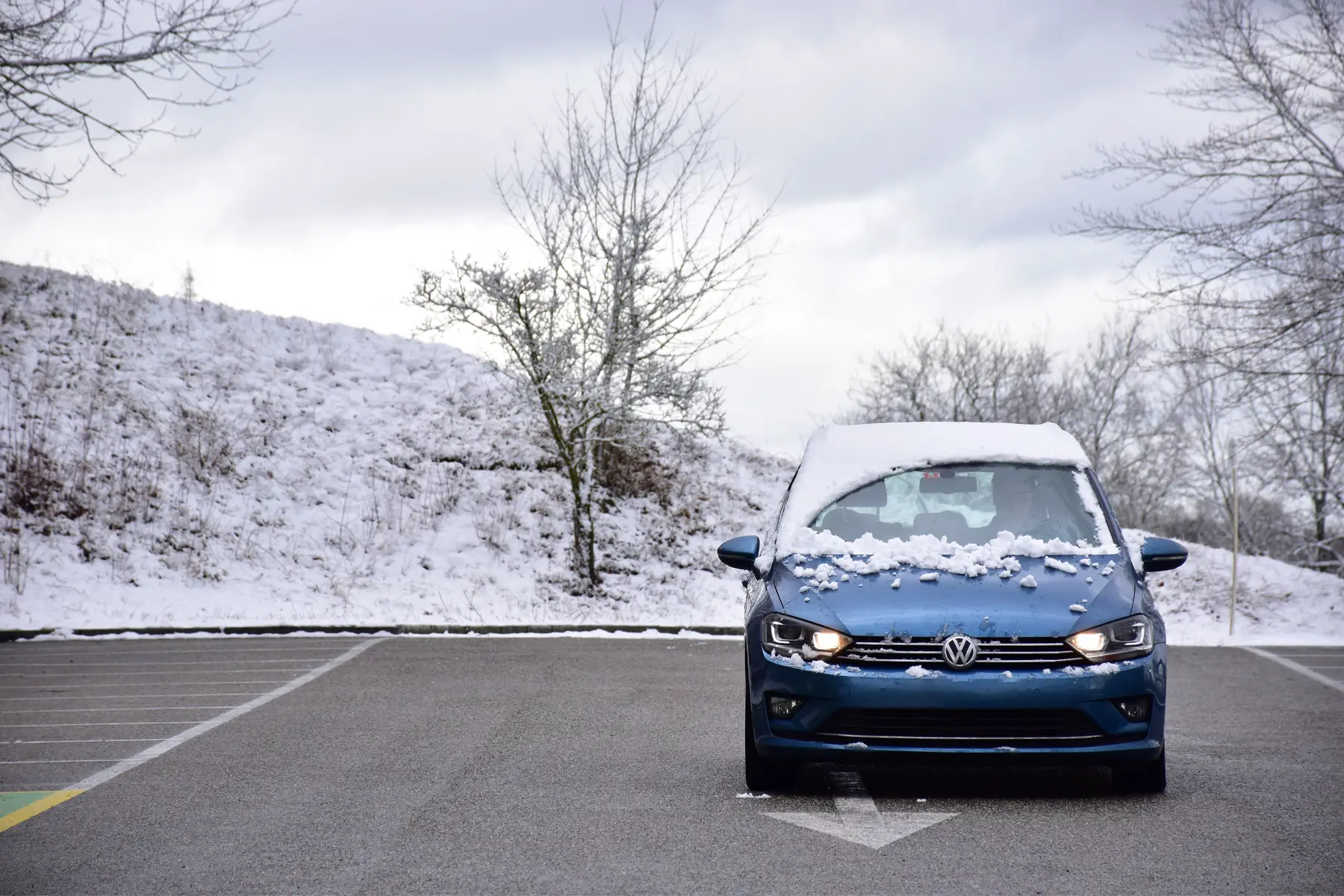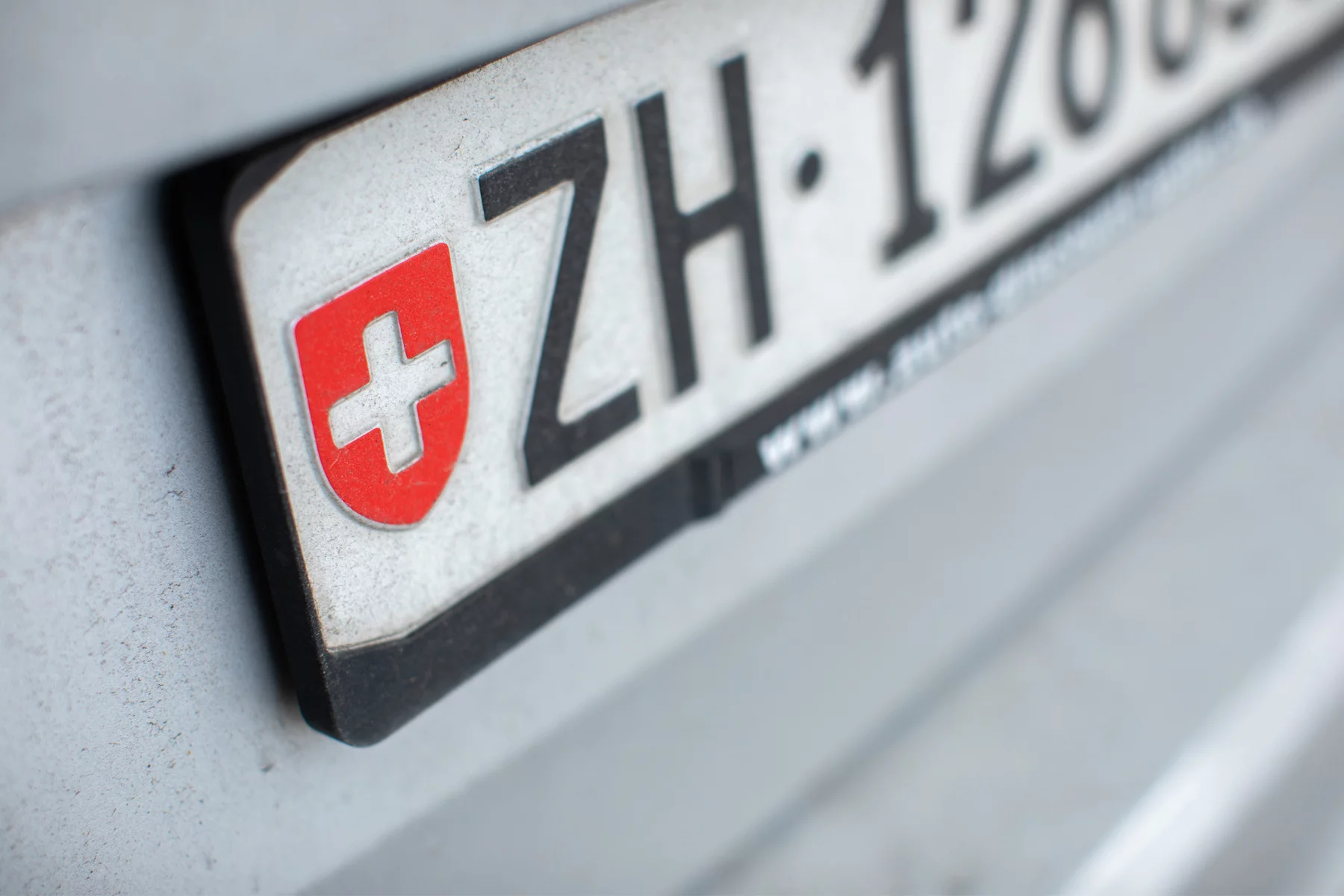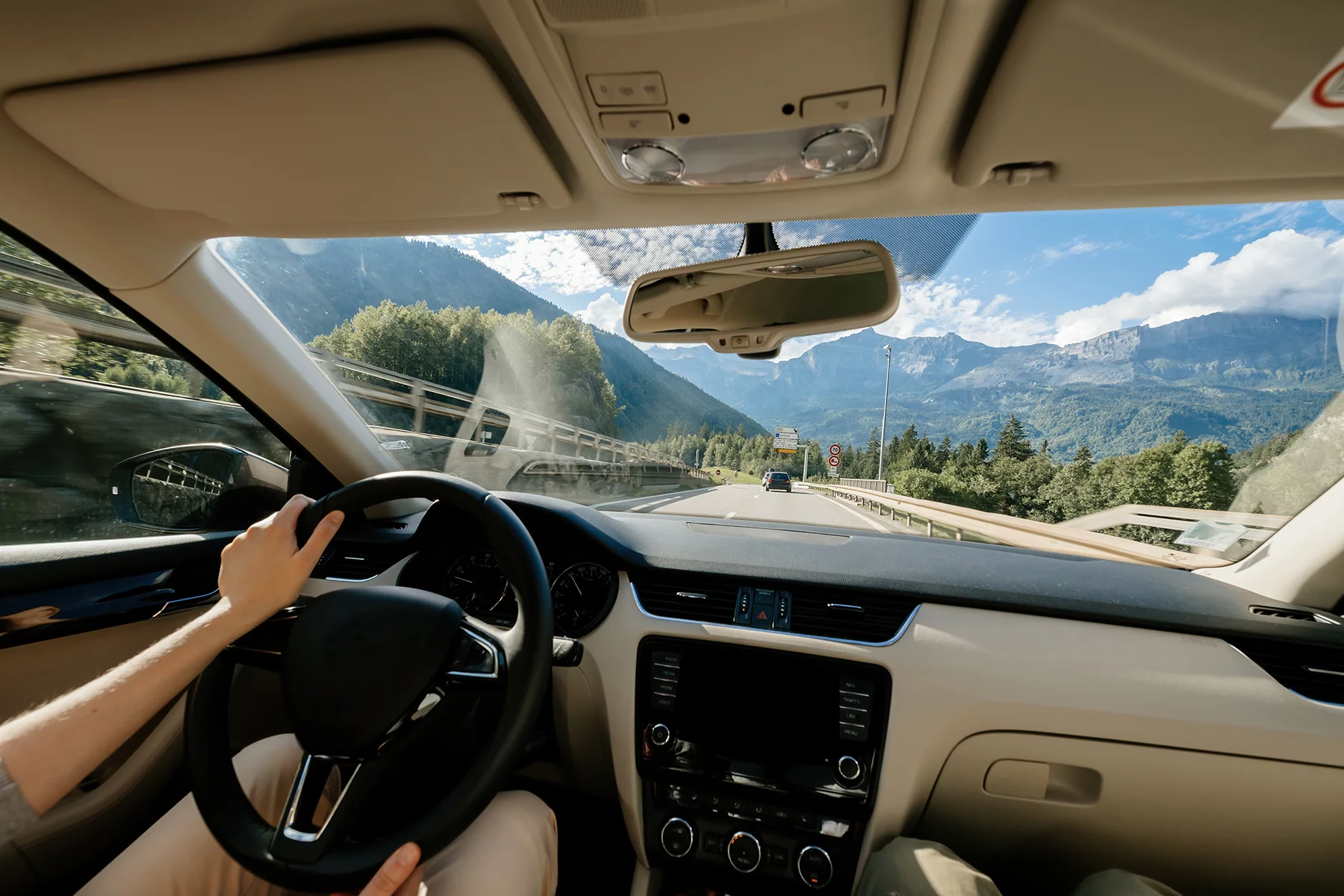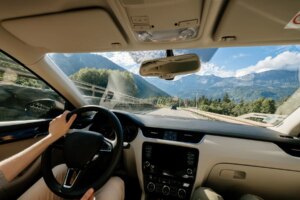Switzerland has plenty of places where you can buy new or used cars. As such, you don’t necessarily have to import a vehicle if you plan to drive when you relocate. However, as in any country, you need to think carefully before committing to a purchase and make sure that you comply with Swiss vehicle and road regulations.
This guide on how to buy a car in Switzerland includes sections on:
- Buying a car in Switzerland
- Who can buy a car in Switzerland?
- Should you import or buy a car in Switzerland?
- Buying a new car in Switzerland
- Where to buy a new car in Switzerland
- Buying a used car in Switzerland
- Where to buy a used car in Switzerland
- Car registration and other paperwork in Switzerland
- Car costs in Switzerland
- Driving in Switzerland
- Equipment your car needs to have in Switzerland
- Selling a car in Switzerland
- Useful resources
Buying a car in Switzerland
Switzerland has a highly developed vehicle market and good-quality roads. Although the public transport network is excellent, many residents choose to drive. There are approximately 540 cars per 1,000 inhabitants – just over one car for every two people. More than three-quarters (78%) of Swiss households own a car and 82% of adults in Switzerland have a driving license.

It is fairly easy to buy a car in Switzerland and many choose to do this rather than importing a foreign car when they move to Switzerland. You can buy cars from many places including dealerships, online sales sites, and private sellers. There were 336,841 new vehicle registrations in 2020. This was down 17.8% in 2019 and the lowest for 24 years. Although experts credit this downturn to the COVID-19 pandemic.
Who can buy a car in Switzerland?
Any Swiss resident with a valid driving license can buy a car in Switzerland. The legal age for driving in Switzerland is 18 for cars (although it’s 16 for some motorcycles and 14 for mopeds).
If you are a foreign resident buying a car, you will need to have a Swiss residence permit. This will typically be either a B (temporary) or C (settlement) permit, although other permits are available. This goes for both EU/EFTA citizens and third-country nationals.
Should you import or buy a car in Switzerland?
An alternative to buying a car in Switzerland is importing a car you already own. You can import most cars to Switzerland as long as they pass inspection, although the situation differs depending on how long you are staying and how long you have owned the car.
When you bring a vehicle to Switzerland, you have to declare it to Swiss Customs unless you are a short-term visitor importing it for less than 12 months. You will need to present it at a Swiss customs office along with the sales invoice/contract, registration certificate, import customs declaration, and your personal ID.

Long-term residents can import a car duty-free if it has been used for at least six months outside Switzerland. Newer cars (i.e., those used for less than six months) will incur fees including:
- Customs duties based on vehicle weight – between CHF 12-15 per 100kg unladen
- Swiss VAT at 7.7%
- Vehicle tax at 4%
- Registration report fee at around CHF 20
- CO2 emissions duty if emissions exceed a certain amount
Buying vs importing
When deciding whether to import or buy a car in Switzerland, you should take a number of different things into consideration:
- Costs – buying a new car may be more expensive, especially if you buy a brand new high-end model. However, there are numerous fees to consider if importing a car, including import duties (if car is older than 6 months), repair costs if you need to carry out work to get it through the local inspection, and maintenance fees once inside Switzerland.
- Time and effort – you need to weigh up the time and effort it is likely to take to research the market and buy a car, versus how much paperwork is involved in importing your car (which depends on your vehicle and your situation). If you buy a new car from a Swiss dealership, they will usually take care of the registration and some of the admin for you.
- Long-term considerations – if you import a car and eventually plan to sell or part-exchange, how sellable will it be? Is there a market for that model?
- How long you will be in Switzerland – if you’re not sure you’ll stay long-term, it might be easier to import rather than buy. Especially if you stay for less than a year, in which case you don’t need to declare anything to customs.

In general, importing often makes more sense when your car is newer or you might not stay in Switzerland for a number of years. Choosing to buy a vehicle might be the better option if your existing car is old and costly to maintain, or if you are relocating permanently.
Buying a new car in Switzerland
Purchasing a new car in Switzerland is obviously more expensive than getting a used car, however, you do get the peace of mind of knowing what you’re buying. Furthermore, if you buy direct from a dealership, they may offer follow-on support, discounts on maintenance, and other services. Additionally, many dealerships will register the vehicle for you.
The requirements when you buy a car in Switzerland vary depending on where you go to make your purchase. In general, you can expect to have to provide the following:
- Valid ID, such as a passport or ID card
- Proof of address
- Swiss residence permit
- Valid driving license
Some Swiss dealerships will also insist on you buying car insurance before they allow you to drive the car from the showroom.

Switzerland doesn’t produce many of its own cars nowadays. The now-defunct Monteverdi was a popular luxury brand until the 1980s. The most popular selling cars in Switzerland in 2020 (with rough prices in brackets) included:
- Skoda Octavia (CHF 35,000)
- Tesla 3 (CHF 55,000)
- VW Tiguan (CHF 45,000)
- VW Golf (CHF 35,000)
- Audi Q3 (CHF 50,000)
- Mercedes Benz A Class (CHF 45,000)
- Volvo XC40 (CHF 60,000)
- Fiat 500 (CHF 25,000)
- BMW X1 (CHF 50,000)
You can compare new car prices in Switzerland on the Comparis website.
Some dealerships will allow you to pay in monthly installments or even offer leasing options, but you will need to be able to demonstrate good credit history of this through your bank. Installment plans are usually more costly overall. Many dealerships will be willing to offer a discount for immediate or cash payments, so be prepared to have your negotiating hat on.
Where to buy a new car in Switzerland
Car dealerships in Switzerland
You can find car dealerships all over Switzerland. They are official outlets for selling brand new cars and some also sell used cars. Usually, the dealerships have large showrooms with a variety of cars placed for sale both in and outside the building.
Swiss car dealerships include dealers associated with just one brand (e.g., Mercedes-Benz), large nationwide dealers that sell multiple brands (e.g., AMAG), and smaller regional or local dealers. Some dealers may allow you to take vehicles out for a short test drive to help you decide if you want to buy.

Dealers will often also take care of much of the initial paperwork, such as registering the car for you, as well as being able to offer additional support and services such as ongoing maintenance or car insurance. Some dealers might not offer the cheapest rates for these, however, so it’s always worth shopping around. If a dealer doesn’t register the car, they should provide you with an inspection report form (13.20A).
You can search for car dealers by brand or region on garage-pages.ch, which is the Swiss car dealer portal.
Buy a car in Switzerland online
Buying vehicles online has become more commonplace in the past few years, especially since the start of the COVID-19 pandemic when people have been more reluctant to visit showrooms. The online automobile marketplace is bigger for used cars at present but is predicted to grow for new cars in the coming years.
Some automobile brands and dealerships have begun to move into online sales. There are also a number of online car brokers where you can search for the best deals. Popular sites include:
- AutoScout24
- Comparis
- Autociel – specialized car service for expats in Switzerland

Buying a car online will often involve eventually visiting a dealership to sort out paperwork and pick up the car. However, you can choose to sort out everything online with some sites. It’s even possible to arrange for your vehicle to be delivered through some online sites.
Although buying a Swiss car online is convenient and allows you to more extensively search the market and find the best deals, be aware of the drawbacks. You won’t have had a chance to test the car and make sure that you’re comfortable with it, so check that there is a cooling-off period where you can return the car if you’re not happy. Additionally, buying online doesn’t allow you to negotiate a lower price or build up a rapport with the dealer that may lead to further special offers.
Buying a used car in Switzerland
Buying a used car can be a great way of saving money when driving in Switzerland. Cars that are less than two years old are sometimes sold at the fraction of their brand new price, which is music to the ears of any bargain hunter. However, as is always the case with any secondhand purchase, you are less sure about what you’re getting and will be less protected if things go wrong than if you buy new.

If you buy from a major dealer or through a big online broker, you are more likely to be protected than if you buy privately through an individual. However you choose to buy a used car in Switzerland, you should make sure that you receive the following:
- Sales contract or purchase agreement – this should include the terms of the sale, vehicle information, buyer and seller details, and the warranty period. The standard for this in Switzerland is two years for used cars, but it can be extended or reduced. See a template contract here.
- Vehicle report – Swiss cars have to undergo mandatory vehicle inspections every few years. Cars older than four years will get a technical control certificate. You can also run a Vehicle Identification Number (VIN) check for accident history, mileage, etc. There are several VIN decoder portals online where you find information by entering the VIN.
- Previous owner details – the cantonal road traffic offices have information on owners of all registered Swiss vehicles. Simply provide the license plate number to find out.
- Previous registration certificate – which you may need when registering the car in your name.
The Swiss comparison site Comparis has a useful checklist for when you buy a car in Switzerland that is secondhand.
Used car prices in Switzerland
Here is a rough price guide for some of the most popular cars in Switzerland if you buy a two-year-old secondhand model:
- Skoda Octavia (CHF 23,000)
- Tesla 3 (CHF 45,000)
- VW Tiguan (CHF 32,000)
- VW Golf (CHF 18,000)
- Audi Q3 (CHF 30,000)
- Mercedes Benz A Class (CHF 25,000)
- Volvo XC40 (CHF 38,000)
- Fiat 500 (CHF 14,000)
- BMW X1 (CHF 28,000)
Check Comparis for current prices.
Where to buy a used car in Switzerland
Car dealerships in Switzerland
Many Swiss dealerships sell used as well as new cars. You can also find dealers that sell only secondhand vehicles as well as those specializing in vintage or classic cars.

Buying a used car from a dealership is probably the safest way to do so. Most established dealers will provide the necessary paperwork as a matter of course. If not, you can ask for a sales contract and request a vehicle report before committing to buy.
Search for car dealerships on the garage-pages.ch website.
Buying a used car in Switzerland online
There are many online sites advertising used cars in Switzerland. These include:
Buying a car in Switzerland from a private owner
Many private car sellers in Switzerland these days are using online sales portals to advertise their cars. However, some still choose more traditional routes. You can find car sales ads on public noticeboards, local forums, local newspapers, and automobile magazines. The Swiss Touring Club (TCS) also has a used car marketplace for its members.
If you buy directly from an individual, make sure that you:
- Use a sales contract or purchase agreement. See here for a template.
- Get the necessary documentation from the seller, including a vehicle report, existing car registration details, and a technical control certificate if the car is over four years old.
- Pay money into an escrow or third-party holding service if asked to pay upfront before receiving the vehicle.
Car registration and other paperwork in Switzerland
All cars in Switzerland need to be registered, whether new, used, or imported. You will need to do this through your local cantonal road traffic office (website in German, French, and Italian), unless you buy through a dealership that does this for you.
If you move home within a canton, you must inform your canton’s road traffic office of your new address within 14 days. When moving to another canton, you must register with your new road traffic office within 14 days. You will receive a new license number plate for your car. This is because Swiss number plates are linked to the name and address of the car owner. You will also need to cancel your registration if you sell, exchange or scrap your car.

You will need to provide the following, either by post or in-person to the office:
- Valid driving license
- Swiss residence permit
- Address in Switzerland
- Car insurance certificate
- Inspection report for 13.20A for new cars (available from a dealership)
- Original registration certificate, for used cars
- Vehicle inspection report, for used cars older than four years
In addition to you car registration certificate, you should also keep a copy of your motor insurance certificate in your vehicle at all times.
Car costs in Switzerland
The main costs to consider when you buy a car in Switzerland, other than the actual purchase costs, are:
- Registration – varies across cantons but can be anything between CHF 50-300 for license plates, registration certificate and inspections.
- Vehicle tax – this varies between cantons and also by vehicle but can be anywhere from CHF 100-800 a year.
- Motorway toll – you have to buy a special license.(Autobahnvignette/vignette autoroutière) to use Swiss motorways. This costs CHF 40 a year.
- Vehicle insurance – can vary from around CHF 300-400 a year for third party to CHF 1,000 – 2,000 for some fully comprehensive policies.
- Fuel costs – currently around CHF 1.52 per liter.
- Vehicle inspection – needed after 4 years and then every 3 years after that. Costs around CHF 130.
On top of this are general maintenance costs, parking costs and the cost of things such as automobile memberships. Average overall costs for owning and driving a car in Switzerland are approximately CHF 700-750 a month, but this can be much cheaper or more expensive depending on your vehicle and location.
Driving in Switzerland
You can drive in Switzerland using your foreign driver’s license for up to 12 months. After this, you will need to exchange it for a Swiss driver’s license. In general, driving in Switzerland is a pleasant experience. It’s a very scenic country and has the third safest roads out of all EU/EFTA countries.
Cars drive on the right and speed limits vary between 3-120km/h depending on the type of road. Expect to be fined anything up to CHF 260 for minor road traffic offenses and suspended, disqualified, or even jailed for serious violations. Swiss traffic police have a reputation for being quite strict so you’ll need to be careful.
Equipment your car needs to have in Switzerland
Keep the following in your car at all times:
- Motor insurance certificate
- Car registration certificate
- Motorway toll/vignette sticker, displayed in your rear window
- Red warning triangle, which you must place behind your car in the event of an accident.
Selling a car in Switzerland
You can sell a car in Switzerland through car dealerships, garages, or privately. You will need to provide vehicle registration details. Selling through a dealership is usually easier but you may need to have work carried out to meet the required standards if the car is a few years old.
If you choose to sell privately, you can advertise through websites such as:
- Auto Online
- Auto Scout 24 (in German, French, Italian)
- TCS (in German)
Make sure that you have the necessary vehicle inspection documents if your car is four years old or more. Also, don’t forget to deregister your vehicle once you’ve sold it.
Useful resources
- Swiss Authorities Online – government portal with information on cars and driving in Switzerland
- Cantonal Road Traffic Offices – where you will need to register your car
- Comparis – find and compare new and secondhand car prices






